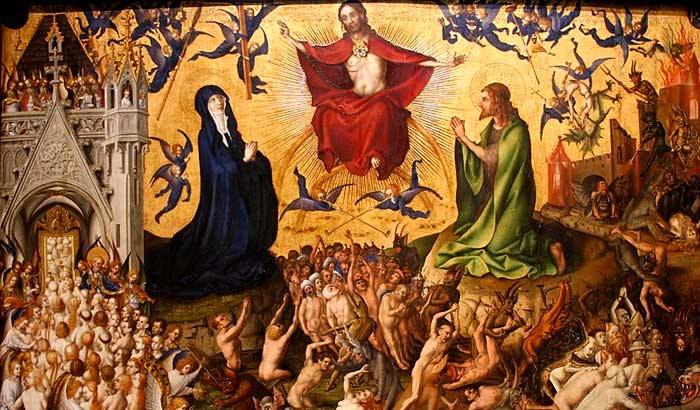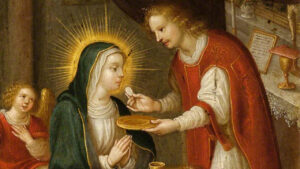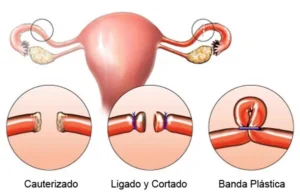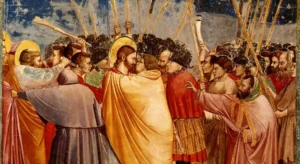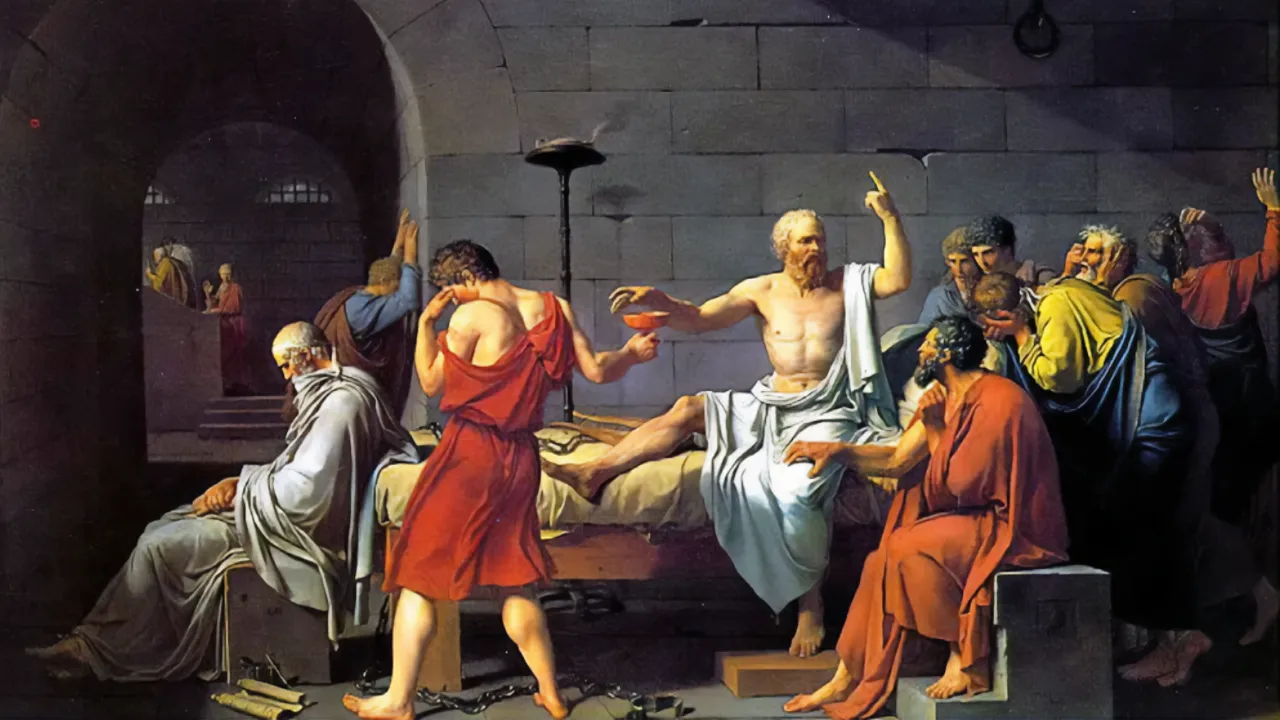Question:
I would like to know about indulgences. How many indulgences are gained by praying the rosary? In this year especially and at other times, can indulgences always be received? How are they acquired and what should be done to obtain them? Thank you.
Answer:
From the book: Christ, Yesterday, Today and Always by Javier Palacios, Ed. Incarnate Word
An indulgence is one of the constitutive elements of the Jubilee. “In them is manifested the plenitude of the mercy of the Father, who goes out to meet everyone with his love, manifested in the first place, with the forgiveness of guilt” (20).
For the doctrine of indulgences, we refer to the teaching of the Catechism of the Catholic Church.
1. What is an indulgence?
“An indulgence is a remission before God of the temporal punishment due to sins whose guilt have already been forgiven, which the faithful Christian who is duly disposed gains under certain prescribed conditions through the action of the Church which, as the minister of redemption, dispenses and applies with authority the treasury of satisfactions of Christ and the saints.”
2. How many kinds of indulgences are there?
“An indulgence is partial or plenary as it removes either part or all of the temporal punishment due to sin.”
3. Who does it benefit?
“The faithful can gain indulgences, partial as well as plenary, for themselves or apply them to the dead” (CIC, can 992-994) (21).
4. What is the consequence of sin?
“To understand this doctrine and practice of the Church, it is necessary to understand that sin has a double consequence. Grave sin deprives us of communion with God and therefore makes us incapable of eternal life, the privation of which is called the ‘eternal punishment’ of sin. On the other hand, every sin, even venial, entails an unhealthy attachment to creatures, which must be purified either here on earth, or after death in the state called Purgatory. This purification frees one from what is called the ‘temporal punishment’ of sin. These two punishments must not be conceived of as a kind of vengeance inflicted by God from without, but as following from the very nature of sin. A conversion which proceeds from a fervent charity can attain the complete purification of the sinner in such a way that no punishment would remain (cf. Council of Trent: DS 1712-1713; 1820)’ (22).
5. And if God has already forgiven me, why do I need to gain an indulgence?
“The forgiveness of sin and restoration of communion with God entail the remission of the eternal punishment of sin, but temporal punishment of sin remains. While patiently bearing sufferings and trials of all kinds and, when the day comes, serenely facing death, the Christian must strive to accept this temporal punishment of sin as a grace. He should strive by works of mercy and charity, as well as by prayer and the various practices of penance, to put off the ‘old man’ and put on the ‘new man’” (cf. Eph 4:24) (23).
6. How is the remission of the punishment of our sins possible?
“The Christian who seeks to purify himself of his sin and to become holy with the help of God’s grace is not alone. “The life of each of God’s children is joined in Christ and through Christ in a wonderful way to the life of all the other Christian brethren in the supernatural unity of the Mystical Body of Christ, as in a single mystical person (24)” (25).
“In the communion of saints, ‘a perennial link of charity exists between the faithful who have already reached their heavenly home, those who are expiating their sins in purgatory, and those who are still pilgrims on earth. Between them there is, too, an abundant exchange of all good things’ (26). In this wonderful exchange, the holiness of one profits others, well beyond the harm that the sin of one could cause others. Thus recourse to the communion of saints lets the contrite sinner be more promptly and efficaciously purified of the punishments for sin” (27).
7. To whom do we owe this remission?
“We also call these spiritual goods of the communion of saints the Church’s treasury, which is ‘not the sum total of the material goods which have accumulated during the course of the centuries. On the contrary, the ‘treasury of the Church’ is the infinite value, which can never be exhausted, which Christ’s merits have before God. They were offered so that the whole of mankind could be set free from sin and attain communion with the Father. In Christ, the Redeemer himself, the satisfaction and merits of his Redemption exist and find their efficacy (cf. Heb 7:23-25, 9:11-28)’ (28)” (29).
“This treasury includes as well the prayers and good works of the Blessed Virgin Mary. They are truly immense, unfathomable, and even pristine in their value before God. In the treasury, too, are the prayers and good works of all the saints, all those who have followed in the footsteps of Christ the Lord and by his grace have made their lives holy and carried out the mission the Father entrusted to them. In this way, they attained their own salvation and at the same time cooperated in saving their brothers in the unity of the Mystical Body” (30).
8. Who distributes indulgences?
“An indulgence is obtained through the Church who, by virtue of the power of binding and loosing granted her by Christ Jesus, intervenes in favor of individual Christians and opens for them the treasury of the merits of Christ and the saints to obtain from the Father of mercies the remission of the temporal punishments due for their sins. Thus the Church does not want simply to come to the aid of these Christians, but also to spur them to works of devotion, penance, and charity” (31).
9. What can I do for the faithful departed?
“Since the faithful departed now being purified are also members of the same communion of saints, one way we can help them is to obtain indulgences for them, so that the temporal punishments due for their sins may be remitted” (32).
Conditions in order to gain an indulgence:
In order to be able to receive the benefits of the indulgence, it is necessary to be baptized, not excommunicated, and in a state of grace by the end of the works prescribed in order to gain the indulgence.
In order for the subject who meets these conditions to benefit, he should have the intention, even a general one, to gain and complete the prescribed works within the designated time and in the proper way.
Plenary Indulgence
The following prayers and actions, among others, have a plenary indulgence attached, if the required conditions are completed:
- “To You, O God, we praise you . . .” (Te Deum): January 1st and the Solemnity of Pentecost.
- “Love prostrate . . .” (Tantum Ergo): Holy Thursday after the Mass In the Lord’s Supper in the liturgical action of Corpus Christi.
- “Most Sweet Jesus . . .” (Act of Reparation): prayed publicly on the day of the Sacred Heart.
- “Look at me, O my beloved and good Jesus . . .” Fridays of Lent
- “Come, Creator Spirit. . .” (Veni Creador): publicly prayed on January 1st and the Solemnity of Pentecost
- Pray the Via Crucis: Moving from one station to the next, at least the one who directs it, while meditating on the scenes with vocal prayer as well if desired.
- Pray the Holy Rosary: praying in a church, in an oratory, as a family or in community. It is sufficient to pray and meditate on only five of the fifteen mysteries, meditating on the mysteries.
- Adoration of Blessed Sacrament for at least half an hour.
- Adoration of the Cross in the liturgy of Good Friday.
- Make the Spiritual Exercises or a similar retreat, at least three days long.
- Receive the Papal Blessing Urbi et Orbi; it is also valid by radio or television.
- Attend the closing rite of a Eucharistic Congress.
- A priest that celebrates the 25th, 50th, or 60th year anniversary of his ordinations and those who accompany him in the Holy Mass.
- Reading Sacred Scripture for at least half an hour.
- Visiting a parish church during the feast of its patron and on August 2nd (indulgence of the Portiuncula). The same is true for the cathedral, co-cathedral or quasi-parochial churches.
- Receive the apostolic blessing when in danger of imminent death. In the case that there is no priest, the Church grants the same indulgence provided that some prayers have been routinely prayed (the three usual conditions to gain an indulgence are supplemented).
- Attend the preaching of some sermons and participate in the closing of a Holy Mission.
- Visit a church or oratory on the day of its holy foundation praying an Our Father and the Creed.
- Visit the Major or Patriarch Basilicas of Rome on the day of its titular feast, any precept day or any day of the year chosen by the same faithful: the Our Father and Creed must be prayed.
- Visit a church or oratory on All Soul’s Day (or with the consent of the bishop, the Sunday before or after). This indulgence applies only to the souls in purgatory.
- Visit a church or altar on the day of its dedication, praying an Our Father and the Creed.
- Use on the day of Saints Peter and Paul (June 29) some pious object blessed by the Pope or a bishop, praying the Creed.
- A priest celebrating his First Solemn Mass and those attending it.
- Renewal of the promises of Baptism: in the Easter Vigil or on the anniversary of Baptism.
- Visit the Church where the Diocesan Synod is celebrated while it is going on, praying the Our Father and the Creed.
- Visit churches on their feast day and season, attending the functions in the morning and afternoon.
- The faithful who makes his First Communion and those accompanying them.
- A visit to the cemetery in the first eight days of the month of November, praying (at least mentally) for the faithful departed.
- During a pastoral visit, those who attend the sacred function presided by the visitor can receive an indulgence once.
Conditions for a plenary indulgence
In order to gain a plenary indulgence, in addition to wanting to avoid any sin mortal or venial, it is necessary to pray or do the work incorporated in an indulgence in compliance with three conditions:
- Sacramental confession
- Eucharistic communion
- Pray for the intentions of the Pope
With a single sacramental confession, several plenary indulgences can be gained; whereas, with a single Holy communion and a single prayer for the intentions of the Pope, only one plenary indulgence is gained. The three conditions can be completed in the days before or after praying or doing the work incorporated in the indulgence; however, it is proper that communion and the prayers for the Pope’s intentions are completed on the same day.
The condition of praying for the intentions of the Pope are fulfilled if one prays a single Our Father and a Hail Mary for his intentions; however, each faithful is given the capacity of praying with any formula according to his piety and devotion.
Plenary indulgences can only be gained once a day, but the faithful Christian can attain a plenary indulgence in articulo mortis, although it be the same day that they have gained another plenary indulgence.
Partial indulgences can be gained several times a day, unless explicitly stated otherwise.
The work indicated in order to obtain a plenary indulgence attached to a Church or oratory consists in a pious visit to the place praying the Our Father and Creed unless other special conditions are established.
Partial Indulgences
The following prayers and actions are partial indulgences, all indicated with (*) can achieve a plenary indulgence if requirements of it are met:
- “To you, blessed Joseph . . .”
- “To you, O God, we praise you . . .” (Te Deum)*
- “Remember, O most gracious Virgin Mary . . .”
- “Angel of God, you who are my guardian . . .”
- “Here we are, Lord, Holy Spirit . . .”
- “Holy Apostles Peter and Paul . . .”
- “Mercy, my God . . .” (Psalm 50)
- “Mary, Mother of grace and of mercy . . .”
- “Adoring prostrate . . .” (Tantum ergo)*
- “Oh, sacred banquet”
- “Look on me, O my loving and good Jesus . . .”*
- “Lord, to all who out of love . . .” (Prayer for our benefactors)
- “Lord, Almighty God, who has brought us to the beginning of this day . . .”
- “Under your protection . . .” (Sub tuum praesidium)
- “Lord, give us eternal rest . . .” This indulgence is applied only to the departed.
- “Adoring devoutly . . .” (Adoro te devote).
- “Soul of Christ . . .”
- “My soul proclaims . . .” (Magnificat)
- “Let us pray for our Pontiff . . .”
- “Most sweet Jesus, your charity . . .”
- “From the depth . . .”
- “Come, Creator Spirit . . .” (Veni Creator)
- “Come, Holy Spirit . . .” (Veni, Spiritus Sanctus)
- “Most sweet Jesus, Redeemer of the human race . . .” (Consecration to Christ the King)
- “To you we give thanks . . .”
- “Lord . . . deign to send your holy angel . . .”
- “Lord, that your grace inspire . . .”
- “Visit Lord this room . . .”
- Pray the Salve.
- Pray the Holy Rosary.
- Pray the Angelus during ordinary time.
- Pray the Creed, either the Apostolic or Nicene Creed*.
- Pray the Regina Coeli during Easter time.
- Pray Morning or Evening Prayer of the Office of the deceased.
- Pray any of the Litanies approved by the Church, among others those of the Most Holy Name of Jesus, of the Sacred Heart of Jesus, of the Most Precious Blood of Our Lord Jesus Christ, of the Holy Virgin Mary, of St. Joseph, and of the Saints.
- Pray asking for vocations.
- Pray for the unity of Christians.
- Pray any of the minor offices.
- Pray a prayer in honor of a saint on the day of his liturgical celebration.
- Adoration of the Most Blessed Sacrament (visit the Sacrament)*.
- Make an act of contrition.
- Read the Sacred Scriptures as spiritual reading*.
- Spiritual communion.
- Attend the Novenas of Christmas, Pentecost or the Immaculate Conception.
- Any act of faith, hope, or charity.
- Do mental prayer for a short time.
- Renew your baptismal promises*.
- Teach or learn Christian doctrine.
- Make the sign of the cross, pronouncing the customary words.
- Visit the catacombs.
- Help with the preaching of the Word of God*.
- Visit a church or oratory during the days of the pastoral visit*.
- Use pious objects with the proper blessing.
- Visit church stations on their proper day.
General Conditions for a partial indulgence
A partial indulgence is granted to faithful Christians who complete their obligations and in the suffering of difficulties of life elevate their soul to God with humble confidence, adding, although being only mentally, some pious invocation.
The partial indulgence is given to the faithful Christian who moved by the Spirit of faith, entrusts himself and his well-being, with sentiments of mercy, to the service of his brothers in need.
A partial indulgence is also granted to the faithful Christian who, with the spirit of penance, voluntarily deprives himself of something that is licit and agreeable.
Dispositions in order to obtain a jubilee indulgence
Decree of the Apostolic Penitentiary
With the present decree, which complies with the will of the Holy Father expressed in the Bull for the convocation of the Great Jubilee of the Year 2000, the Apostolic Penitentiary, by virtue of the powers granted by the Supreme Pontiff himself, determines the discipline that is to be observed in order to obtain the Jubilee indulgence.
All suitably prepared faithful can benefit abundantly from the gift of indulgence throughout the Jubilee, as specified below.
Recalling that the indulgences already granted, either in a general way, or by a special degree, remain in force during the Great Jubilee, it is recalled that the Jubilee indulgence can be applied as aid to the souls of the deceased. With this practice, an act of supernatural charity is made by the bond in the Mystical Body of Christ by which the faithful, still pilgrims in this world, are united with those who have already ended their earthly life. During the Jubilee Year, also in place is the rule that a plenary indulgence can be attained only once a day (33).
The culmination of the Jubilee is an encounter with God the Father through Christ the Savior, present in his Church, especially in his Sacraments. For this reason, the entire jubilee journey, prepared by the pilgrimage, has as its starting and ending point the celebration of the Sacrament of Penance and the Eucharist, the Paschal Mystery of Christ, our peace and our reconciliation: this is the transformative encounter that opens the gift of the indulgence for oneself and for others.
After the worthy celebration of the sacrament of confession, which in the ordinary way, according to can. 960 of CIC and can. 720 of CCEO, must be in its individual and full form. The faithful, once the requirements have been met, can receive or apply during a prudent period of time the gift of the plenary indulgence, even on a daily basis, without having to repeat confession.
It is appropriate, however, for the faithful to receive frequently the grace of the Sacrament of Penance, in order to deepen conversion and purity of heart (34). Participation in the Eucharist – necessary for each indulgence – should take place on the same day in which the prescribed works are completed (35).
These two culminating moments must be accompanied, above all, by the witness of communion with the Church, expressed by the prayer for the intentions of the Roman Pontiff, along with works of charity and penance, as indicated below. These works want to express true conversion of heart to which communion with Christ leads to in the Sacraments. Indeed, Christ is indulgence and propitiation for our sins (1 Jn 2:2). He, inscribing the Holy Spirit in the hearts of the faithful, which is “the forgiveness of all sins” (36), impels each one to a filial and trusting encounter with the Father of mercy. From this encounter arises the commitments of conversion and renewal, of ecclesiastical communion, and of charity among brothers and sisters.
For this coming Jubilee, the rule that confessors can substitute, in favor of those who are legitimately impeded, both the prescribed work and the required conditions, is confirmed. The cloistered religious, the sick, and all those who cannot leave their home, may, instead of visiting a determined church, make a visit to a chapel of the house itself. If even this were not possible, one could obtain an indulgence by spiritually joining those who fulfilled the prescribed work in the ordinary way, offering to God their prayers, sufferings, and annoyances.
With respect to the necessary requirements, the faithful can obtain the jubilee indulgence:
1) In Rome, making a pilgrimage to one of the patriarchal Basilicas, namely, St. Peter’s Basilica in the Vatican, the Archbasilica of the Most Holy Savior of Lateran, the Basilica of St. Mary Major, or of St. Paul Outside the Walls on the Ostiense Way, and participating there in the Holy Mass with devotion or in another liturgical celebration like Laudes or Vespers, or in an exercise of piety (for example, the Via Crucis, Marian Rosary, pray the hymn of Akàthistos in honor of the Mother of God); also visiting, in a group or individually, one of the four patriarchal Basilicas and staying there for a certain time of Eucharistic adoration or spiritual meditation, ending with an “Our Father”, the profession of faith in one of the legitimate forms, and an invocation of the Most Blessed Virgin Mary. On this special occasion of the Grand Jubilee, the following places are added to the four Basilicas under the same conditions: the Basilica of the Holy Cross of Jerusalem, the Basilica of St. Lawrence next to the Summer Cemetery, the Shrine of the Virgen of Divine Love and the Christian Catacombs (38).
2) In the Holy Land, observing the same conditions above and visiting the Basilica of the Holy Sepulcher in Jerusalem, the Basilica of the Nativity in Bethlehem or the Basilica of the Annunciation in Nazareth.
3) In other ecclesiastical districts, making a pilgrimage to the Cathedral Church or other churches or places designated by the Ordinary, and attending there with devotion a liturgical celebration or other type of exercise, as indicated above for the city of Rome; also visiting, in a group or individually, the Cathedral Church or a shrine designated by the Ordinary, staying there for a certain time in spiritual meditation, concluding with the “Our Father”, a profession of the faith in any of the legitimate forms, and an invocation to the Most Blessed Virgin Mary.
4) In each place, going to visit for a convenient time those brothers in need or in difficulty (sick, incarcerated, lonely elderly, disabled, etc.), as making a pilgrimage to Christ present in them (cf. Mt 25:34-36) and fulfilling the spiritual requirements of the sacraments and prayer. The faithful will certainly want to repeat these visits during the Holy Year, being able to gain in each of them the plenary indulgence, obviously only once a day.
The jubilee plenary indulgence can be obtained also with incentives that favor a concrete and generous way of spiritual penitence, that is like the soul of the Jubilee. To know: abstaining at least from superfluous things during the day (for example, tobacco, alcoholic drinks, fasting or practicing abstinence according to the general norms of the Church and of the Episcopates), and giving a proportional sum of money to the poor; sustaining with a significant share works of a religious or social character (especially in favor of abandoned children, youth with difficulties, elderly in need, foreigners in various countries where they seek better living conditions); dedicating a convenient part of one’s own free time to activities of interest to the community or other similar forms of personal sacrifice.
Rome, in the Apostolic Penitentiary, 29 November 1998, 1st Sunday of Advent.
WILLIAM WAKFFIELD Card. BAUM
Major Penitentiary
LUIGI DE MAGISTRIS
Regent
Fr. Miguel A. Fuentes, IVE
Bibliography
(20) John Paul II, Incarnationis Mysterium, Bull of convocation of the Great Jubilee Year 2000, 9.
(21) Catechism of the Catholic Church, 1471.
(22) Ibid., 1472.
(23) Ibid., 1473.
(24) Paul VI, Apostolic Constitution Indulgentiarum Doctrina, 5.
(25) Catechism of the Catholic Church, 1475.
(26) Paul VI, Indulgentiarum Doctrina, 5.
(27) Catechism of the Catholic Church, 1475.
(28) Paul VI, Indulgentiarum Doctrina, ibid.
(29) Catechism of the Catholic Church, 1476.
(30) Paul VI, Ibid., 1477.
(31) Cf. Paul VI, ibid., 8, Counicl of Trent; DS 1835, Ibid., 1478.
(32) Ibid., 1479.
(33) Cf. Enchiridion indulgentiarum, LEV 1986 norm. 21, 1.
(34) Ibid., norm. 23, 1-2.
(35) Ibid., norm. 23, 3.
(36) “Quia ipse remissio omnium peccatorum”: Missale Romanum, Super oblata, Sabbato post Dominicam VII Paschae.
(37) Cf. Ench. Indulg., norm. 27.
(38) Ibid., conces, 14.
Original post: Here
Another post: The Blessing: with which hand?

